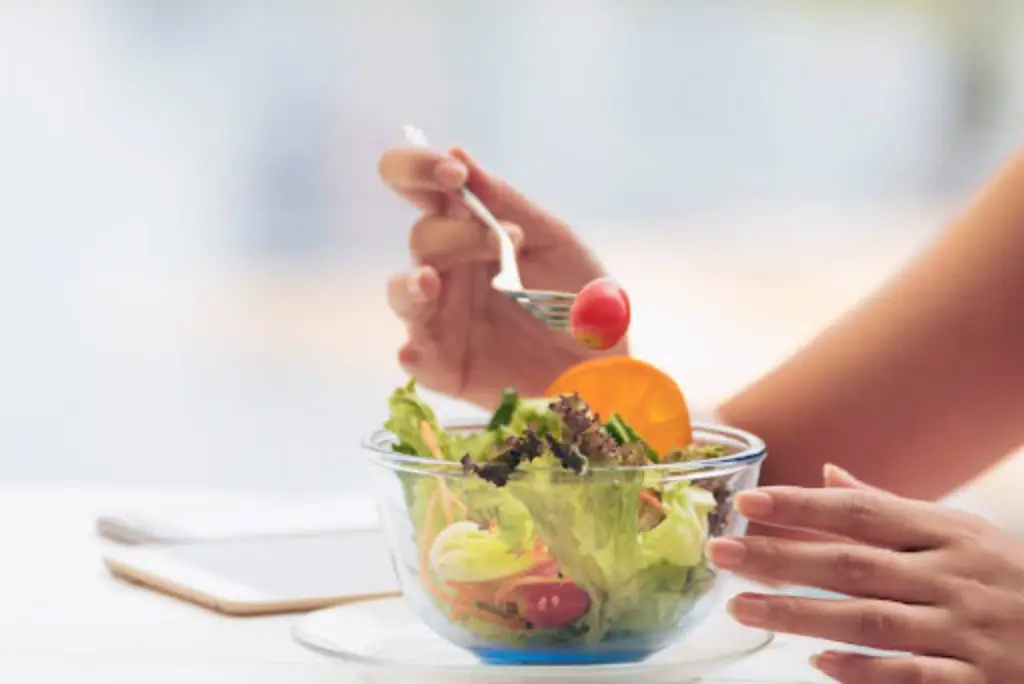Over the years, I’ve met countless clients who connect with me for online diet consultations, excited and full of hope, “I’m ready for a detox!” they say.
Social media trends, celebrity juice cleanses, and quick-fix “miracle” programs have turned detox into a magical word. But let me share a little secret: your body is already a detox expert.
As a nutritionist and personal health coach, I often remind my clients that detoxing isn’t about starving yourself or surviving on green juices. It’s about giving your body the right kind of nourishment so it can do what it’s naturally built to do: cleanse, repair, and restore balance.
In this blog, I’ll break down what is a detox diet, separate detox diet myths and facts, and show you how to create a healthy detox diet plan that truly works, one that supports your body, mind, and long-term wellness.
What Is a Detox Diet?
Many people think a detox diet magically “flushes out” toxins, but the truth is, your body already has a powerful built-in system that does this every day. Your liver, kidneys, lungs, skin, and digestive tract work continuously to filter and eliminate waste naturally.
When clients ask me what is a detox diet, I explain that it’s not about starvation or fancy juices; it’s about giving your body a short break from processed foods, sugar, caffeine, and alcohol.
Instead, you nourish it with fresh fruits, vegetables, herbal teas, and plenty of water to support its natural cleansing process.
A detox plan for weight loss can help you feel lighter and reduce bloating, but it should never be just about the number on the scale. The science behind detox diets clearly shows that when you focus on balance and nourishment rather than extremes, your body responds with lasting energy, clarity, and vitality.

Common Types of Detox Diets
Over the years, I’ve seen people try almost every type of cleanse imaginable.
Here are some of the most popular ones I often discuss during my personal consultations:
| Type of Detox Diet | Description | My Take as a Nutritionist |
| Juice Cleanse | Involves drinking only fruit and vegetable juices for 1–3 days to “cleanse” the body. | Juices lack fiber, so I recommend combining them with whole foods for balance. |
| Smoothie Detox | Replaces meals with blended fruits, greens, nuts, and seeds. | Better than juice cleanses since it retains fiber and nutrients. |
| Water Fasting | Consuming only water for several days to “reset” the body. | Not suitable for most people, can lead to fatigue and nutrient loss. |
| Herbal Detox Teas | Teas that claim to remove toxins or boost metabolism. | Some are helpful, but avoid ones with strong laxatives or artificial blends. |
| Raw Food Detox | Focuses on uncooked, plant-based foods like fruits, salads, and nuts. | Great for short periods, but needs protein sources for balance. |
When comparing a juice cleanse vs a detox diet, I always remind my clients that juices remove fiber while balanced detox plans include whole fruits, vegetables, and lean proteins for sustained energy.
A healthy detox diet plan should focus on nourishment, not deprivation.
To make your detox even more effective, it’s essential to understand your body type, Vata, Pitta, or Kapha, and eat accordingly. Once you align your meals with your Ayurvedic body type, your digestion, energy, and overall balance naturally improve.
Do Detox Diets Actually Work?
This is where we separate detox diet myths and facts, because there’s a lot of confusion out there!
Myth: Detox diets completely remove toxins your body can’t handle on its own.
Fact: Your body already has a powerful detox system. The liver, kidneys, and digestive tract work 24/7 to cleanse naturally; all nutrition does is support that process.
That said, certain safe detox diets that work can be beneficial when done correctly, especially after periods of overeating, stress, or poor sleep. A few days of mindful eating and hydration can help you feel lighter and more energized.
However, extreme fasting or one-food “detox” plans often do more harm than good, leading to fatigue, weakness, or nutrient loss.
In my experience as a nutritionist and personal coach, sustainable results always come from balance. Clients who focus on wholesome meals, regular hydration, and quality sleep see far better outcomes than those chasing quick-fix detox trends.
If you’ve ever struggled to stick to a plan, discover why most diets fail and how to make yours work long-term to build habits that truly last.
How the Body Naturally Detoxifies Itself
I’ve always found it fascinating how efficiently the human body knows how to heal and cleanse itself.
The science behind detox diets proves that our organs are constantly working behind the scenes, keeping us balanced and toxin-free without needing any extreme cleanses.
| Organ | Role in Detoxification | Support With |
| Liver | Breaks down toxins and converts them into waste. | Turmeric, garlic, leafy greens, beetroot. |
| Kidneys | Filter blood and remove toxins through urine. | Hydration, cucumbers, bananas. |
| Skin | Expels impurities through sweat. | Exercise, berries, and citrus fruits. |
| Digestive Tract | Eliminates undigested food and waste. | Fiber-rich foods like oats, lentils, and grains. |
I always encourage my clients to eat foods that naturally support these organs. Even in my own routine, a few days of mindful eating leave me feeling lighter, clearer, and more energized.
Potential Benefits of a Short-Term Detox Diet
As per my experience, I’ve seen that when done correctly, short-term detox routines can make you feel refreshed, both physically and mentally. They’re not a miracle, but they can be a wonderful reset for your body and habits.
Here are some of the benefits my clients often experience:
- Improved Digestion: Removing processed foods and eating lighter meals can ease bloating, acidity, and indigestion.
- Better Hydration: Drinking more water and herbal teas helps flush out toxins, keeping your body and skin hydrated.
- Reduced Sugar Cravings: Within a few days, your taste buds reset, and natural foods start tasting sweeter and more satisfying.
- Clearer Skin: A diet full of antioxidants and hydration can give your skin a visible glow and clarity.
- More Energy & Focus: With less junk and more nourishment, energy levels naturally rise, and the mind feels sharper.
A detox plan for weight loss should never mean deprivation; it should focus on restoring balance, preserving muscle, and nourishing your body with real, whole foods.
To get the most out of detox plans, check out how to maintain a balanced diet even with late nights.
Healthy Alternatives to Fad Detox Diets
Over the years, I’ve designed countless personalized meal plans that serve as safe detox diets that work, without starving the body or relying on unrealistic restrictions.
Here’s what I recommend instead of quick crash cleanses:
- Start your day right: Begin with warm water, lemon, and chia seeds to hydrate and awaken your metabolism.
- Eat fiber-rich meals: Include salads, oats, quinoa, or vegetable soups to keep digestion smooth and eliminate toxins naturally.
- Add herbal support: Use turmeric, ginger, mint, or cinnamon infusions; they gently boost liver function and immunity.
- Keep meals balanced: Pair complex carbs with lean protein and healthy fats for steady energy throughout the day.
- Move and rest mindfully: Gentle yoga, walking, and proper sleep are as important as your diet for complete detoxification.
Remember, the goal isn’t to punish your body, it’s to nourish and reset it. When my clients adopt this mindset, I notice incredible transformations: balanced weight, glowing skin, calmer digestion, and more stable moods.
The best detox diets 2025 aren’t about extremes; they’re rooted in science, sustainability, and self-care. A gentle, consistent approach will always give you results that last far beyond a week of “cleansing.”
You can also explore 5 simple tips to detoxify your body after a festival for easy, everyday ways to reset without strict restrictions.

What to Avoid in Detox Programs
One of the first things I teach in my online consultations and wellness workshops is that knowing what not to eat is just as important as knowing what to include. Many people unknowingly derail their progress by consuming “healthy-looking” foods that actually burden the liver, spike insulin, or slow digestion.
Here are some of my key guidelines on foods to avoid during detox:
- Processed foods & refined sugar: These are major culprits that trigger inflammation and energy crashes.
- Too much caffeine: A small amount is fine, but excessive coffee or energy drinks can dehydrate and stress your system.
- Dairy and fried foods: These are harder to digest and can cause bloating during detox.
- Alcohol: Even small amounts interfere with liver function and slow your natural cleansing process.
- Detox teas or pills promising instant results: These often contain harsh laxatives or stimulants that do more harm than good.
If you’re aiming for a healthy detox diet plan, keep it simple, eat real food. Fill your plate with fresh vegetables, fruits, legumes, lean proteins, and whole grains. And remember, hydration is your best detox tool. Water, coconut water, or herbal teas work wonders for keeping your body clean and energized.
When my clients make these small but powerful adjustments, they often feel lighter, less bloated, and far more energetic, without giving up on real meals or taste.
If you’re unsure where to start or want to avoid common mistakes, read how hiring a nutritionist is worth it to see how expert guidance can make your detox safer and more effective.
Tapasya’s Approach to a Mindful and Real Detox
For me, detoxing isn’t about quick results or trendy juice cleanses; it’s about creating a quiet pause for your body and mind. Over the years, I’ve seen that real transformation begins when you start listening to your body instead of pushing it to extremes.
As an Online Indian Dietician & Nutritionist in Dubai, my approach combines mindful nutrition, seasonal eating, and gentle routines that align with your lifestyle. I focus on small, sustainable changes, morning rituals that center you, foods that heal from within, and balance that lasts beyond a week of “clean eating.”
Every healthy detox diet plan I design is personalized, because your metabolism, stress levels, and goals are unique. Whether it’s a detox plan for weight loss or simply to restore energy, I ensure it’s something you can truly enjoy and maintain.
Ready to experience a detox that’s designed just for you?
Book a personalized consultation with me today, and let’s create a plan that helps you feel lighter, calmer, and naturally energized.
Frequently Asked Questions (FAQ)
Question: What foods to eat when detoxing?
Answer: Focus on fresh vegetables, fruits, whole grains, and herbal teas; they naturally support liver and gut health. I personally start my mornings with turmeric and lemon water for a gentle cleanse.
Question: What is a good detox diet plan?
Answer: A good detox plan includes clean, unprocessed foods, proper hydration, and balanced portions. The best detox diets 2025 focus on nourishment, not restriction.
Question: How to do a 7-day detox?
Answer: Eliminate caffeine, sugar, and alcohol, and replace them with fruits, soups, and herbal drinks. Always consult a professional before starting your safe detox diets that work.
Question: What is the best way to detox your body?
Answer: True detox comes from balance, hydration, whole foods, rest, and movement. Avoid extreme fads; real results come from mindful daily habits.
Tapasya Mundhra is a Clinical Dietitian and Wellness Consultant based in Newark, USA, specializing in Nutrition for Weight Loss, Detox Diets, and Stress Management. With over 13 years of experience, she helps clients optimize their physical and mental well-being through personalized diet plans, moderate workouts, and holistic health strategies. Trusted by countless clients, she is dedicated to achieving sustainable health goals.

